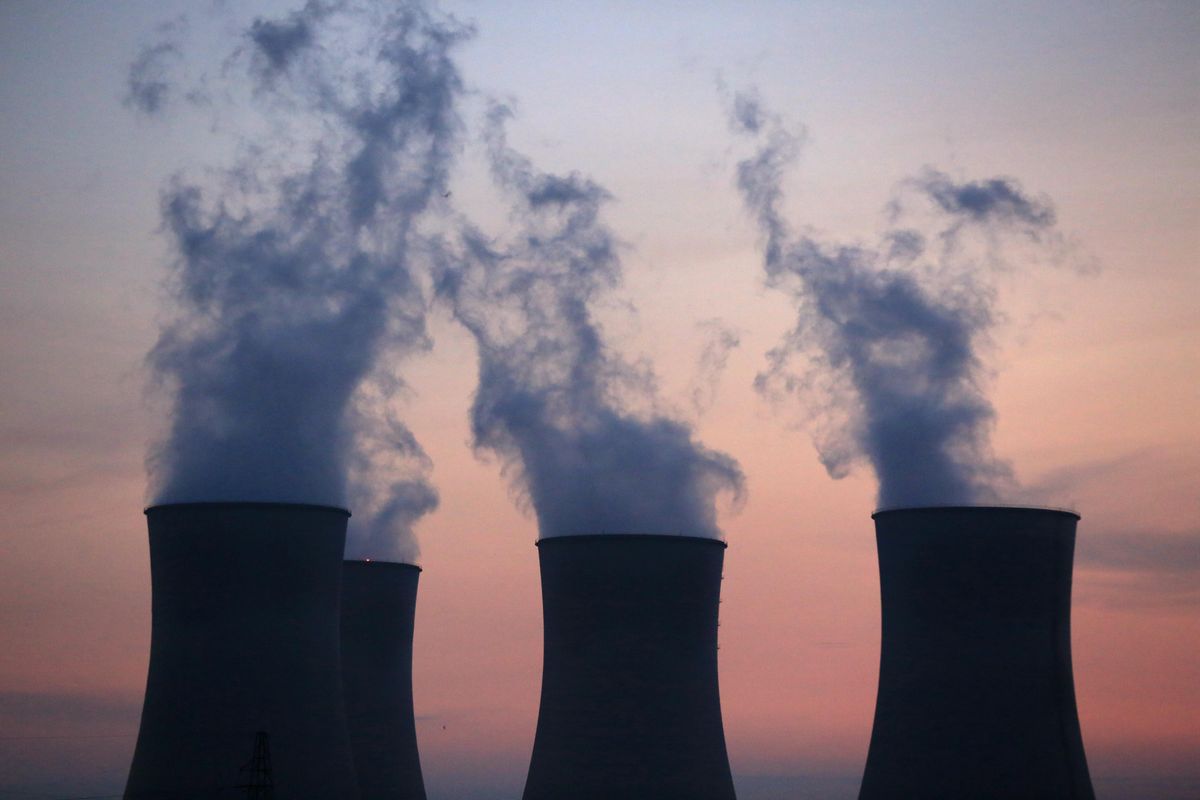Want to tackle climate change? If so you'll have to reach out to China, which is currently responsible for over a quarter of global carbon dioxide emissions. Beijing will certainly take your call, as climate is a huge priority for President Xi Jinping.
Xi has promised that China will go "net zero" — meaning its carbon emissions will be offset by equal amounts of either natural or tech-driven carbon capture — by 2060. Is a decade later than most of the top 10 polluting countries fast enough for the rest of the world? It is for the Chinese, who want to help but have their own ideas about how.
The world's smokestack. Burning fossil fuels like there's no tomorrow has been essential for China's economy, now the world's second-largest, to have grown around 10 percent annually for most of the past thirty years. The tradeoff for that growth is massive pollution, which continues today and is the main reason China is not on track to meet its emissions reduction targets in the 2015 Paris Climate Accord.
When carbon emissions from China's coal plants and smoke-belching factories get stuck in the atmosphere, they contribute to the global warming that leads to stronger monsoon floods in Bangladesh, longer droughts in sub-Saharan Africa, and more frequent cyclones in the Gulf of Mexico.
It's not that China doesn't care about the problems it causes other countries. But it's only fair, the Chinese argue, that we get the same shot at growing our economy through fossil fuels that industrialized Western countries got when they started polluting the planet way before we started to.
Climate is a big deal inside China. Once-arable lands in the interior are now barren, Beijing has long experienced poor air quality and increasingly frequent sand storms, and rising sea levels threaten major coastal cities like Hong Kong and Shanghai. No matter how fast the Chinese want to get rich, they are no longer willing to do so at the expense of their environment.
So, what is China doing about all this? First, China is embracing renewables at a scale the proponents of the Green New Deal in the US would balk at. In 2020, China accounted for more than half of the world's added electrical capacity from renewables. Second, the Chinese are betting on modern nuclear plants to become a more reliable and clean(ish) alternative in the country's energy mix.
At the same time, though, China has not only not abandoned coal, but is rather doubling down on new coal-fired plants. Xi, though, has an ace up his sleeve: carbon capture and storage technology, which traps emissions before they are released into the air and keeps them stored underground.
If widely adopted by heavy industry, it is estimated that carbon capture could cut China's emissions by at least 15 percent in 2060. What's more, emissions could be slashed by an additional 20 percent if the stored carbon is transformed into clean hydrogen, which Beijing expects to power nine out of 10 vehicles — including aircraft — to meet its net-zero target.
Beijing is also making a global play for green tech. The so-called "factory of the world" is reinventing itself to cash in on climate. China — which is increasingly looking to tech to solve all its problems — has already cornered the global market on affordable solar panels, wind turbines, and electric vehicles. The next step is to make carbon capture and clean hydrogen accessible and cheap for the rest of the world.
Dominating the global market for green tech is a win-win for Beijing: Chinese companies would benefit tremendously, and China itself would take credit for doing more than its fair share to save the planet.
But the Chinese don't want to do it all alone. A major sticking point in current US-China climate negotiations is that Beijing is demanding that America and its allies pitch in more cash for developing countries to wean themselves of fossil fuels. The Chinese complain that rich nations which demand net zero targets for all gobble up most of the available budget to help everyone go green.
China wants to open the floodgates of climate finance to increase global demand for Chinese green tech. Will US tech firms step up their game to compete with them? Earth will surely benefit from that.



















